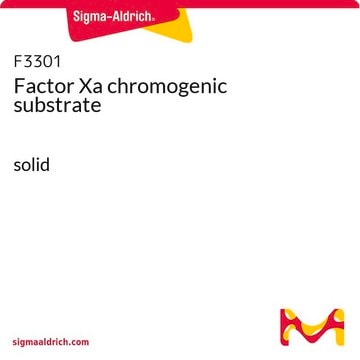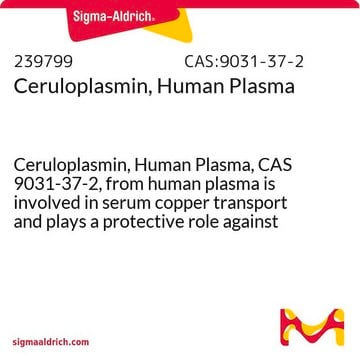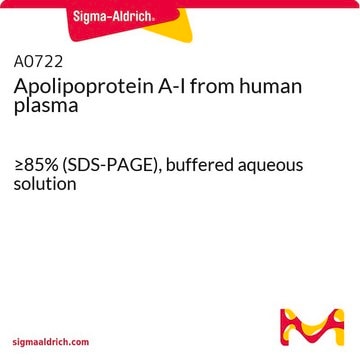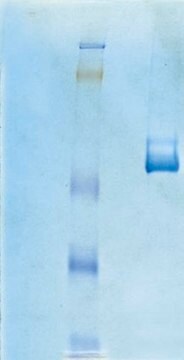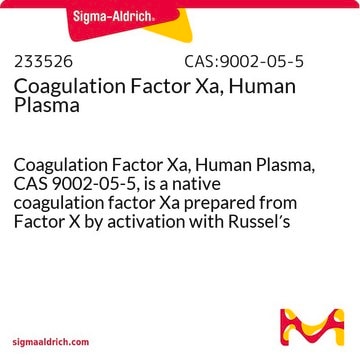A2221
Antithrombin III from human plasma
lyophilized powder, ≥95% (SDS-PAGE)
Synonym(s):
Factor Xa inhibitor, Heparin cofactor
About This Item
Recommended Products
biological source
human plasma
Quality Level
Assay
≥95% (SDS-PAGE)
form
lyophilized powder
UniProt accession no.
storage temp.
−20°C
Gene Information
human ... SERPINC1(462)
Looking for similar products? Visit Product Comparison Guide
Biochem/physiol Actions
Linkage
Unit Definition
Physical form
Disclaimer
Storage Class Code
11 - Combustible Solids
WGK
WGK 3
Flash Point(F)
Not applicable
Flash Point(C)
Not applicable
Certificates of Analysis (COA)
Search for Certificates of Analysis (COA) by entering the products Lot/Batch Number. Lot and Batch Numbers can be found on a product’s label following the words ‘Lot’ or ‘Batch’.
Already Own This Product?
Find documentation for the products that you have recently purchased in the Document Library.
Customers Also Viewed
Protocols
Thrombin is an endolytic serine protease that selectively cleaves the Arg–Gly bonds of fibrinogen to form fibrin and release fibrinopeptides A and B.
Our team of scientists has experience in all areas of research including Life Science, Material Science, Chemical Synthesis, Chromatography, Analytical and many others.
Contact Technical Service


